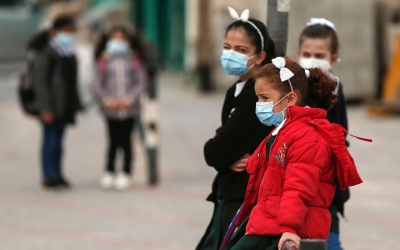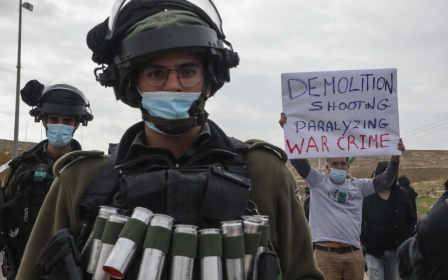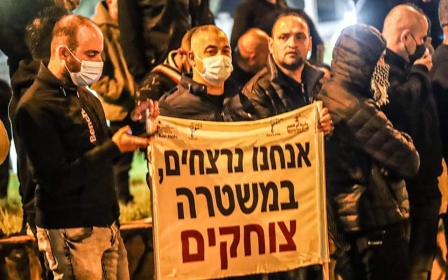Covid-19: Israel begins exit from third virus lockdown

Israeli barbershops and some other businesses reopened on Sunday, the start of the working week, as the country began easing its third coronavirus lockdown amid an aggressive vaccination campaign.
The government had announced on Friday it was lifting some restrictions imposed since December, when the country saw a rise in Covid-19 infections.
While shops were not formally permitted to open, many small stores were making transactions with clients standing outside.
Since December, more than 3.4 million of Israel's nine million people have received a coronavirus vaccine jab in what is seen as the world's fastest per-capita campaign, though Palestinians living in the occupied territories have been left out of the vaccine roll-out.
Despite the inoculations, Israel has been registering a daily average of 6,500 new Covid-19 cases, down from around 8,000 in mid-January.
A strict nationwide lockdown in force since 27 December was extended four times to combat the infection rate, but January was the deadliest month yet, with more than 1,000 Covid fatalities.
But as of Sunday, Israelis were no longer restricted to within one kilometre of their homes.
Hair and beauty salons were allowed to have one person providing a service to one client, while nature reserves and national parks reopened.
Hotels remained shut and restaurants were allowed to cater only for takeaways, while guesthouses could only host members of the same nuclear family.
A suspension of international flights will remain in place until 20 February, along with the closure of Israel's land borders.
Israelis stranded abroad will be able to return on special flights.
The cabinet was due to meet later on Sunday to plan the further relaxing of limitations, especially in the educational system, set to reopen on Tuesday morning.
The government also increased fines for businesses or schools operating in violation of the restrictions.
Many ultra-Orthodox institutions had opened during the lockdown in defiance of instructions, and some frustrated entrepreneurs have announced they will reopen their businesses even before the lockdown is entirely lifted.
Middle East Eye propose une couverture et une analyse indépendantes et incomparables du Moyen-Orient, de l’Afrique du Nord et d’autres régions du monde. Pour en savoir plus sur la reprise de ce contenu et les frais qui s’appliquent, veuillez remplir ce formulaire [en anglais]. Pour en savoir plus sur MEE, cliquez ici [en anglais].





